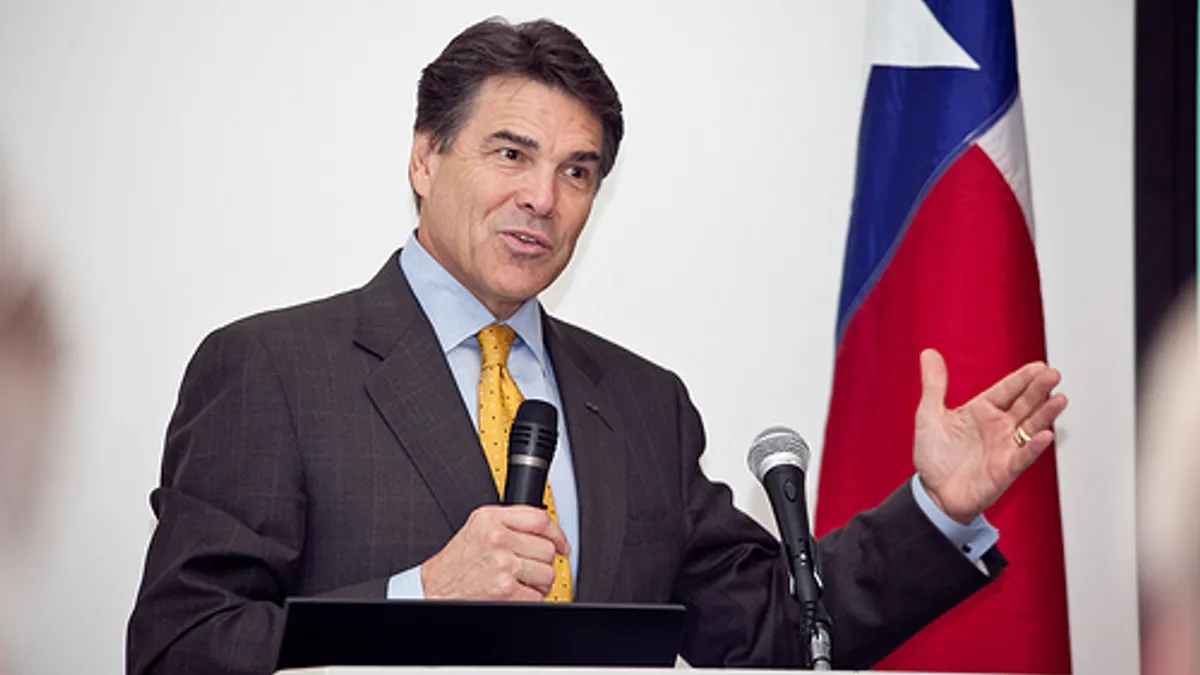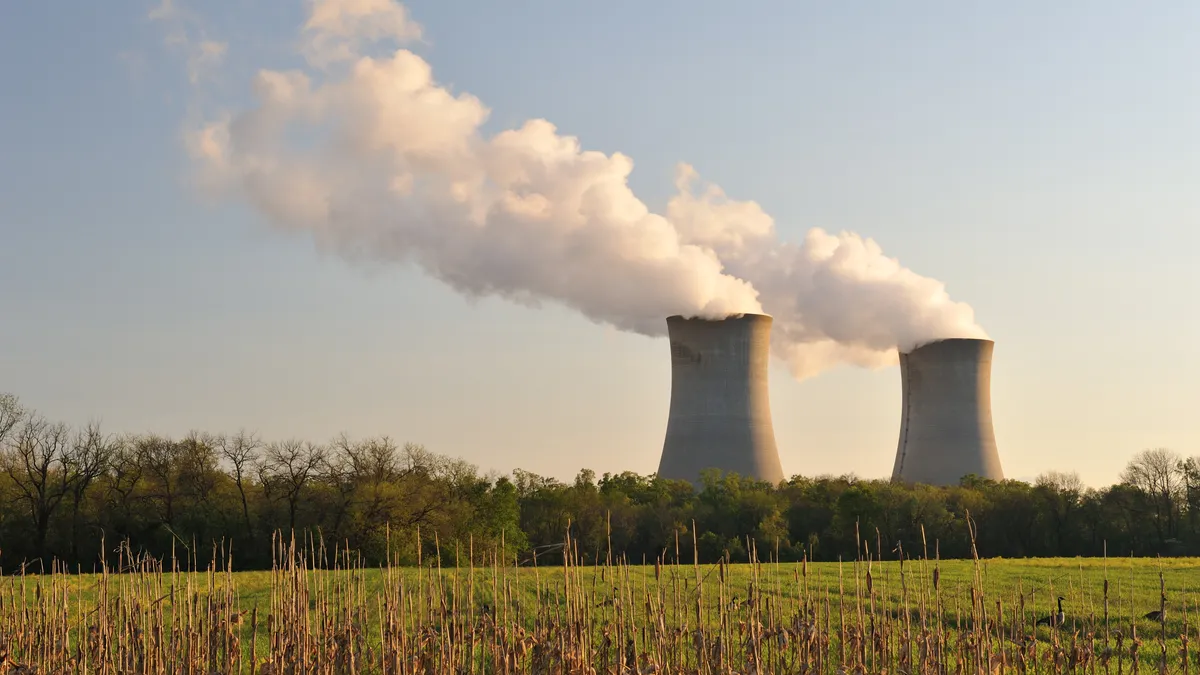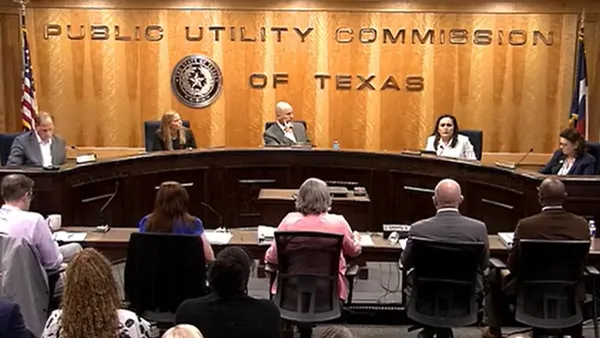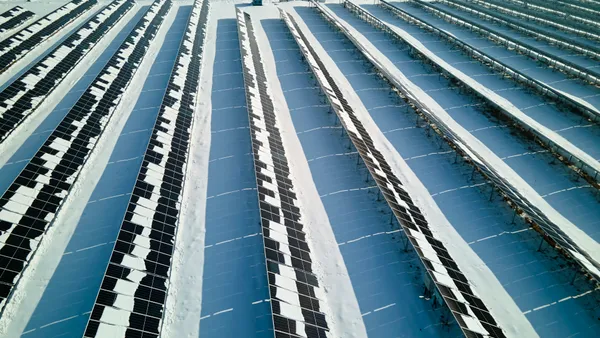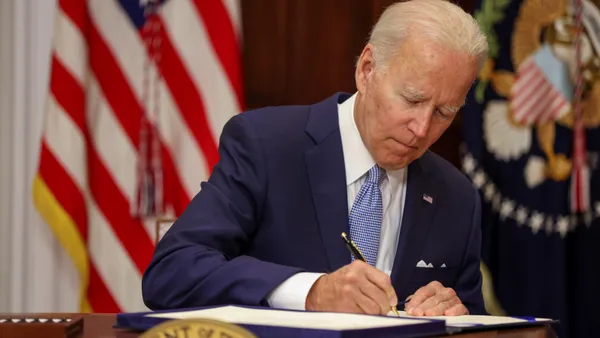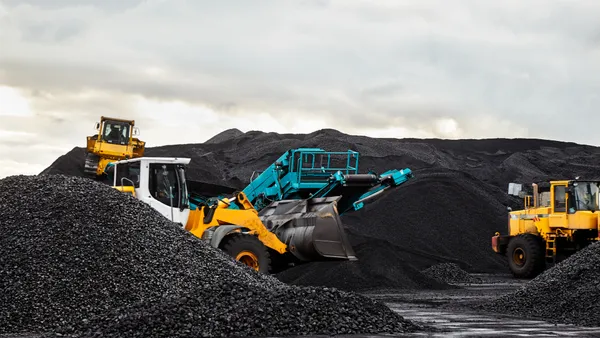Dive Brief:
- A leaked copy of the Department of Energy's power grid review finds that renewable energy is not threatening electric reliability, Bloomberg reports.
- Secretary of Energy Rick Perry ordered the review in April, seeking to ascertain whether intermittent resources like wind and solar are pushing baseload power generators offline. He later said the Trump administration could seek to preempt state clean energy policies if reliability is threatened.
- The leaked report, however, finds that "more reliable today due to better planning, market discipline, and better operating rules and standards." It is unclear whether those statements will be included in the final report, which could be released as soon as tomorrow.
Dive Insight:
DOE's baseload power assessment sparked concern in clean energy circles, with critics worried the outcome is pre-ordained to disadvantage renewable resources and support coal and nuclear generators.
In ordering the study, Perry praised baseload generators and appeared to single out intermittent resources for scrutiny. The DOE head later said that the White House could seek to overrule state energy policies, such as renewables mandates, on national security grounds if it found reliability was threatened.
A leaked draft of the report could assuage some of those concerns. Bloomberg reports that the language falls in line with findings from national laboratories, independent consultancies and grid operators, who say that low natural gas prices and stagnant load growth are more important factors in the retirement of baseload generators.
Last year, SNL identified more than 21 GW of baseload coal, nuclear and gas generation at risk of early retirement through 2020.
"Costly environmental regulations and subsidized renewable generation have exacerbated baseload power plant retirements," the draft reportedly says. "However, those factors played minor roles compared to the long-standing drop in electricity demand relative to previous expectation and years of low electric prices driven by high natural gas availability."
Those findings would please many of the nation's largest electric companies, which last month pushed DOE to keep its hands off state energy policies and grid planning in interviews with Utility Dive. But it remains unclear whether the language will remain in the final version of the DOE study.
In response to the Bloomberg story, a DOE spokesperson told the outlet that the draft is "constantly evolving" and that "those statements as written are not in the current draft."
As of Friday, the draft also reportedly lacked a recommendations section or input from senior staff at DOE. And as Bloomberg noted, federal agency heads often put their own stamp on reports written by career staffers.
Release of the draft, originally scheduled for June, could come as early as this week. Perry is slated to speak at the National Press Club on Tuesday morning, but it's unclear if the study will be released by then.


